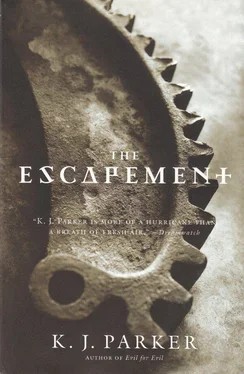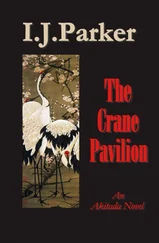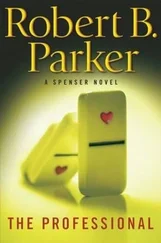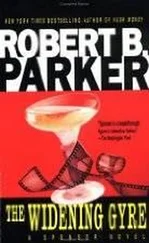K Parker - The Escapement
Здесь есть возможность читать онлайн «K Parker - The Escapement» весь текст электронной книги совершенно бесплатно (целиком полную версию без сокращений). В некоторых случаях можно слушать аудио, скачать через торрент в формате fb2 и присутствует краткое содержание. Жанр: Фэнтези, на английском языке. Описание произведения, (предисловие) а так же отзывы посетителей доступны на портале библиотеки ЛибКат.
- Название:The Escapement
- Автор:
- Жанр:
- Год:неизвестен
- ISBN:нет данных
- Рейтинг книги:4 / 5. Голосов: 1
-
Избранное:Добавить в избранное
- Отзывы:
-
Ваша оценка:
- 80
- 1
- 2
- 3
- 4
- 5
The Escapement: краткое содержание, описание и аннотация
Предлагаем к чтению аннотацию, описание, краткое содержание или предисловие (зависит от того, что написал сам автор книги «The Escapement»). Если вы не нашли необходимую информацию о книге — напишите в комментариях, мы постараемся отыскать её.
The Escapement — читать онлайн бесплатно полную книгу (весь текст) целиком
Ниже представлен текст книги, разбитый по страницам. Система сохранения места последней прочитанной страницы, позволяет с удобством читать онлайн бесплатно книгу «The Escapement», без необходимости каждый раз заново искать на чём Вы остановились. Поставьте закладку, и сможете в любой момент перейти на страницу, на которой закончили чтение.
Интервал:
Закладка:
"So, like I said, we probably have a little time. Now, if you'd care to look closely at the model here, I'll show you what I have in mind."
The men with the buckets, who'd nearly gone to sleep, sprang forward. They dumped their earth in piles, and the two representatives of the Architects', who'd been sitting quietly at the back, set to with little rakes and trowels, moving the earth around like children playing sandcastles. For a while it was just a silly mess; but then shapes began to form.
(What we need, Psellus thought as he watched, isn't engineers so much as gardeners.)
"This," he said as he pointed, "is really just a great big bank of earth, all round the City. You'll have to imagine the equally big hole out here somewhere, which is where we'll take the earth from. In point of fact, that'll be our first line of defence, since we'll divert the Brownwater and the Vane into it and flood it to make a nice wide moat, which ought to make Vaatzes' life rather more interesting. Now, these wedge-shaped bits sticking out of the bank are called bastions; the idea is to put our own artillery on them, and you'll see that, because of how they stick out, the engines will be able to shoot in all directions; there won't be any blind spots or safe areas where sappers can hide while they're digging under the walls. The great thing about making the bastions out of plain old ordinary earth is that they'll be soft. Vaatzes' engines can pound them with rocks and they'll just sink in, rather than smashing them up, which is what would happen if they were made of stone, like the walls. Obviously, sooner or later a continuous bombardment will shatter the brick and timber frameworks that keep the earth in, or else shake the earth loose; but that'll take time, which is the rarest and most precious commodity in this whole business. Time is the key, you see. We don't have to keep them out for ever; only for long enough. We all know the saying, time is money. It's a lot more than that. Time is distance; time is flour and animal feed and firewood, it's the patience of Vaatzes' barbarian allies-they're nomads, they aren't used to staying in one place. Time is overflowing latrines and a sudden flood of rain, leading to dysentery and plague; it's the grain surplus of the faraway places we don't even know about, where they grow the wheat that's shipped to Lonazep, and which isn't infinite." He paused, smiled a little. "It's a paradox," he went on. "Here in the City we make weapons out of steel, the best anywhere, which we don't know how to use; but what we've never realised before is that everything in our lives is really a weapon-the food we eat, the earth we stand on, lumber, bricks, shovels, buckets, carts, horses; and of course time." And one other thing, he thought but didn't say; the one thing that'll win this war for us, if anything can, the deadliest weapon of all. "Now we know we're not soldiers," he went on, "because we don't know a lot about spears and bows and arrows, or drill, or cavalry tactics. So, we can't expect to fight a war with soldiers and their kind of weapons. So instead we'll fight with the weapons we do know how to use, or those we can learn about quickly and easily: food, earth, water, money and time. The whole point of the Republic is knowing what to do and doing it well, doing what we know best. That's why we have the Guilds, and Specification. That's all we've got; we don't have armies or generals, just as we don't have dukes and princes and kings. Well; we don't have them, we don't need them, we don't even want them. We can win this war, beat the savages and save the City, just so long as we do what we're best at: ingenuity, resourcefulness, and plenty of hard, gruelling work. Or," he added, with a little nod of his head, "we can all give up, wait for the savages to come at us with Vaatzes' engines, and die. I think it's a fairly straightforward choice, but what do I know, I'm just a clerk who never wanted this job. I suppose it's up to you to decide, but you'd better do it quickly, and once you've made your decision, you'd better stick to it. Otherwise… well." He shook his head. "Unless someone else has any ideas. I'd be delighted to hear them."
Nobody said anything, of course, and Psellus thought: well, so much for politics. We've always had so much of it, we've been so busy about it all these years, and it turns out we were wasting our time. Now it's suddenly turned serious, and they'll follow any bloody fool, so long as someone else'll do all the dangerous thinking for them. At any rate, if we do lose, it takes the sting out of it, a bit. After all, if we're this pathetic when it really matters, maybe we wouldn't be such a great loss, after all.
They were waiting for him to say something.
"I think that's all, really," he said. "I take it nobody's got anything else to contribute; in which case, we might as well make a start. I've taken the liberty of writing up a schedule-we'll need to alter it as we go along, naturally, at this stage it's more guesswork than anything, so please don't feel afraid to say what you think about it. I've also given each of you your own specific assignments. I'll be talking to you about those over the next day or so, after we've all had a chance to reflect on what I've just told you. First priority, I think, is to organise the workforce, get everybody's names on a register and assign them to where they'll be needed. Aniaces, that'll be your job, you'll want to talk to the Guilds, they know everybody's names and where they live. It shouldn't be too hard really, all the infrastructure's in place already. Maybe you could see me around ten this evening, once you've had a chance to gather your thoughts, and we'll go through it together. Pazzas, I want you to take charge of the food supply, getting in as much as we can, storage, distribution systems. Oniazes, I'd like you to handle material procurement-speak to Alexicaccus at the Foundrymen's, Falier at the ordnance factory, Zeuxis at the Carpenters', you know who to talk to as well as I do. I suggest we meet again the day after tomorrow, when we should all have a clearer idea of what we're about, and we'll take it from there."
Later, when he was back in his office and alone again, he started to shake. It took a while for it to pass, and then he felt terribly cold, especially in his knees and hands. He thought for a while about Ziani Vaatzes, who'd escaped from the Guildhall by jumping out of a window.
It's tempting, he thought, but I'm too old to jump. He wasn't quite sure what happened to the next fortnight. It didn't seem to have passed, because the enemy were still at Vassa, still only nine days away. Only nine days to go, then, before the end of the world, in single time. The trick, according to the fencing master, was to step a day back for every day forward taken by the enemy. So far, it seemed to be working, but it was making him feel dizzy.
At some point during those fourteen days, the members of Necessary Evil (his colleagues; dear God, his subordinates) had been busy. Each Guild had produced a register of all its members who were able-bodied and available for work, arranged and subdivided by factory, chapel, ward and lodge; each subdivision had its work assignment; all the assignments had been co-ordinated into a Grand Over-Arching Schedule (either a work of genius or the biggest joke ever perpetrated, but only time would tell); the necessary tools and materials for each job at each stage of the Schedule had been sourced, located and batched for delivery. From the gatehouse towers, you could see a forest of sticks standing up out of the plain in front of the City like some bizarre failed crop, each stick flying a little coloured pennant, each colour having its own secret significance to the surveyors' branch of the Architects', and between the taller, thicker sticks were strung taut lines of red and blue twine, marking sites of trenches, foundations, bastions, supporting walls, so that the observer from the tower might easily believe he was looking at a technical drawing, a lifesize blueprint. So far, of course, nobody had actually sunk a spade or filled a bucket. But there was still time.
Читать дальшеИнтервал:
Закладка:
Похожие книги на «The Escapement»
Представляем Вашему вниманию похожие книги на «The Escapement» списком для выбора. Мы отобрали схожую по названию и смыслу литературу в надежде предоставить читателям больше вариантов отыскать новые, интересные, ещё непрочитанные произведения.
Обсуждение, отзывы о книге «The Escapement» и просто собственные мнения читателей. Оставьте ваши комментарии, напишите, что Вы думаете о произведении, его смысле или главных героях. Укажите что конкретно понравилось, а что нет, и почему Вы так считаете.












